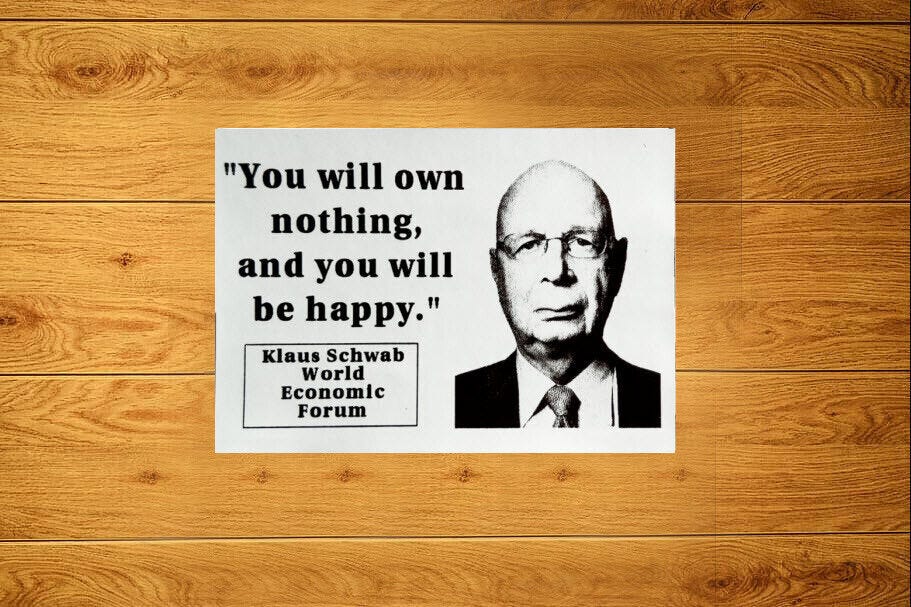Davos, Switzerland –
It ended not with a bang, but a bureaucratic whimper.
Klaus Schwab, the man who played God with global capitalism for more than half a century, was shown the door from the World Economic Forum—his own Frankenstein—after 55 years at the helm. No ticker-tape parade. No ceremonial gavel. Just a sterile memo, a new “strategic direction,” and the unspoken truth: the world had outgrown his gospel of stakeholder capitalism, climate sermons, and digital leashes masquerading as freedom.
He was the darling of Davos, the balding prophet in round glasses who whispered sweet nothings about “public-private partnerships” while the real world buckled under the weight of inflation, surveillance, and Silicon Valley’s death grip on reality.
But this spring, the message from Geneva was clear: pack your bags, Klaus. The party’s over.
They called it a “planned succession,” but inside sources tell us Schwab was pushed—not gently either. The global south had stopped taking his calls. Wall Street found him increasingly annoying. Washington and Brussels, facing election earthquakes, needed distance. And Beijing? Beijing had already outgrown his Swiss neutrality and began running its own forum in Hainan.
🔥🧵 THREAD: THE FALL OF SCHWAB
— George Christensen (@NationFirstAust) April 23, 2025
Why was Klaus Schwab, the godfather of globalism, pushed out of the World Economic Forum after 55 years in charge?
His own staff blew the whistle.
Here’s what they exposed—and why it shatters the Great Reset 👇
1/18 pic.twitter.com/NLIUqutLDQ
Klaus Schwab, who once declared, “You’ll own nothing and be happy,” now owns nothing—not even the movement he created. His vision of “the Great Reset” had become radioactive. To voters in the Rust Belt and farmers in Saskatchewan, it meant empty bank accounts and electric tractors that didn’t work. To freedom lovers worldwide, it meant biometric prisons, ESG blackmail, and unelected technocrats running the show.
And in the end, even the billionaires he coddled turned on him. They used his platform, sold their green dreams, signed their Net-Zero pledges, and quietly reloaded their portfolios with oil and gold. Then they left the old man behind. Klaus, once the high priest of neoliberal scripture, became its sacrificial lamb.
They replaced him with someone younger, genderless, data-driven, and utterly forgettable—a chief algorithmic officer with a soft voice and no soul. The WEF will go on, yes, but like a snake that’s shed its skin. Hollow. Digital. Controlled.
Schwab’s ousting is more than just a retirement—it’s a symbol. The death rattle of globalism. A technocratic Tower of Babel collapsing under its own arrogance. The man who dined with kings, installed presidents, and thought he could digitize human nature finally met the one thing he couldn’t code: backlash.
Call it populism. Call it nationalism. Call it a punch in the face from reality. The free market’s revenge. The sovereign citizen’s return. The tide had been rising for years, and Klaus was too busy filming panel discussions with CEOs to notice the water at his knees.
The world has changed. Nations are rearming. Currencies are decoupling. The gold standard whispers from the shadows. And across the developing world, voices are rising—not to be invited to Davos, but to burn it down and build something local, real, and sovereign.
Klaus Schwab once said, “History is at a turning point.”
Turns out, it was his.
At Invest Offshore, we monitor tectonic shifts like these—because when empires wobble and high priests fall, smart investors look offshore. Into gold, copper, silver, sovereign real estate, and energy-backed currencies.
The Copperbelt Region of West Africa is calling. Are you listening?

Leave a Reply